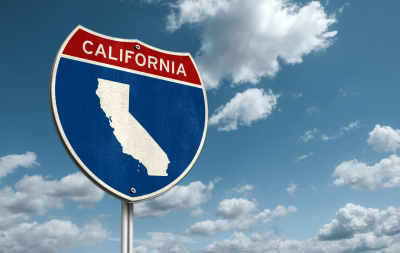California leads the country in proving the blue state model doesn't work

New York lost more residents from July 2022 to July 2023 than California, almost 102,000 compared to 75,423, according to the Census Bureau.
But it's the Golden State that has written the how-not-to guide. It's the trendsetter of blue state public policy.
When a little more than a year ago the Rose Institute of State and Local Government at Claremont McKenna College surveyed Californians who had expressed an interest in moving, "many respondents from across the political spectrum described concerns about the cost of living and other aspects of the economy." While "Republicans described concerns about politics and policy," "very few Democrats did." This should not be unexpected.
However, the response from "one independent from near Santa Barbara" seems representative of a middle that is fed up. This person declared that California "is run by morons."
Between the day (Sept. 9, 1850) it was admitted into the union and 2020, California's population increased every year. It has now lost population for three straight years. From April 1, 2020, to July 1, 2023, the state suffered a net loss of 573,019 residents. Over that same period, New York's population withered by 631,104.
Other states have lost people, as well, since the pandemic arrived. Most of them have been blue states, with red states taking in the refugees. The top destinations have been Florida, Texas, the Carolinas, Tennessee and Georgia, red states all of them.
In addition to California and New York, other big losers have been Illinois, New Jersey, Massachusetts and Maryland — all blue states, and all in awe of California's legislative and regulatory patterns.
In one of the more prominent instances of emulating Sacramento, several other states followed California's "lead" in outlawing gasoline and diesel-powered automobiles and replacing them with, almost exclusively, electric vehicles.
The list of imitators includes Massachusetts (which lost 31,534 residents from April 2020 to July 2023), New Jersey (which had a modest overall gain of 1,802 but lost more than 153,000 domestically), and New York (631,104), all of which emulated California Gov. Gavin Newsom, who unilaterally decided in September 2020 that he could make consumers' decisions for them. (His executive order was approved two years later by the state's unelected Air Resources Board.)
Imitating California policies will inevitably impose a punishing cost of living driven by steep energy prices (inflated even further by the growing renewables fetish), exorbitant housing, excessive taxation, and labor compensation set artificially high by government, cut into businesses' profits (and force them to make uncomfortable decisions, such as escape to more liberating states), stifle entrepreneurship, restrict liberties, invite homelessness and subject millions to inept governance.
None of these are reasons to stay. All are reasons to flee.
California's declining population means that along with a shrinking congressional delegation (the state could lose as many as five U.S. House seats by 2030), it's likely losing some degree of its political influence across the country. If that means its capacity to advance progressive, blue-state policies beyond its borders has been diminished, it's good news. The entire country will be better off.
This op-ed first appeared in Fox News Opinion on www.FoxNews.com.
Kerry Jackson is the William Clement Fellow in California Reform at the Pacific Research Institute.




























